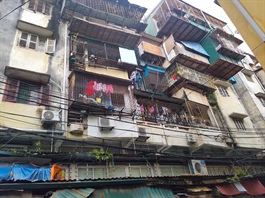FIEs tangle with red tape over new land
FIEs tangle with red tape over new land
Land shortages are an eternal problem for investors, especially foreign-invested enterprises, often leading to lengthy delays in expansion plans.

Schaeffler Vietnam Co., Ltd, a subsidiary of Schaeffler group – a global automotive and industrial supplier – is becoming impatient with the failure to be allocated land for its expansion in the southern province of Dong Nai. The land was supposed to be handed over in late 2021, but could be delayed for three years.
According to Schaeffler, the company put $45 million into phase 1 of a greenfield plant in 2019, at Amata Industrial Park. Leaders of Schaeffler and Amata agreed that once the first phase of the greenfield operation was operating steadily, a plot of land neighbouring the plant would be allocated to the company to expand its operation.
In September, Schaeffler sent a document to the prime minister outlining its difficulties. “Due to the pandemic, Amata changed the timeline to this year. However, some weeks ago, it said they would hand over land on December 2024 instead due to the change in land management policy. Thus the province will have to change the overall planning, and this work will take a very long time,” it said.
“If the land allocation is delayed, we are forced to look for elsewhere in the region to build the expanded plant, and many other investors will also face a similar solution.”
Dong Nai Industrial Zones Management Authority (DIZA) deputy director Duong Thi Xuan Nuong told VIR, “The authority received the group’s complaint, and we have worked with the Ministry of Planning and Investment numerous times to report the problem to the government to get a solution.”
In late August, Prime Minister Pham Minh Chinh requested the revision of the Law on Land, which deals with a wide scope and relates to many other laws. PM Chinh asked the drafting body to consult government members, experts, scientists, and relevant parties to finalise and submit the draft to the National Assembly this month. One of the key measures in the draft revised Law on Land is decentralising land management decision-making to localities to unleash resources. Once approved, the revised Law on Land is expected to make it easier for localities to allocate land to investors, creating favourable conditions to expand their operations in Vietnam.
It is not the first time an investor has faced difficulties with land acquisition in Dong Nai. Danish jewellery brand Pandora had previously visited the province to survey and rent land in Long Thanh Industrial Park to build a new jewellery facility. But due to a lack of land, the province forced the investor to wait too long, and they took the project to the southern province of Binh Duong instead.
According to the report from Dong Nai Department of Planning and Investment, many foreign-invested enterprises are waiting for the province to allocate 100-hectare land plots to develop factories.
Nguyen Van Lam, director of a cocoa and coffee processing company in the Central Highlands of Gia Lai, has also experienced problems acquiring land for expansion.
“I worked with provincial authorities to get more land to grow crops, but the procedure is complicated. To get just one square metre of land, it needs 100 signatures and stamps,” he told VIR.





















